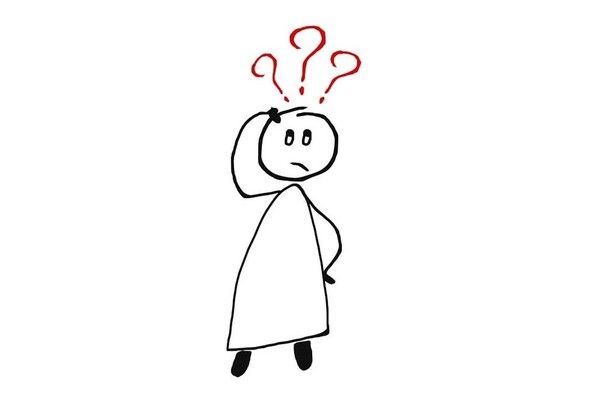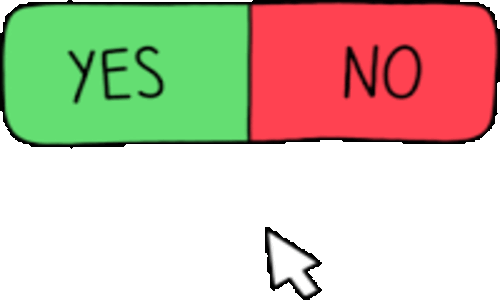
Fuente/Source
Ayer alguien me preguntó por qué todos los años hago lo mismo en el contexto religioso al encender las velas del Jánuca que lucen en la ventana de mi casa si nadie me obliga a nada. Mi respuesta fue rápida, clara y sencilla: "de la misma manera en que nadie en tu religión te obliga a poner un árbol de Navidad en casa y a creer en Santa Claus".
Yesterday, someone asked me why I do the same thing every year in a religious context, lighting the Hanukkah candles that hang in the window of my house, if no one forces me to do anything. My answer was quick, clear and simple: "in the same way that no one in your religion forces you to put up a Christmas tree at home and believe in Santa Claus."
Fin del cuento.
End of the story.
"Nadie te obliga a nada" fue una afirmación dicha con ligereza cuando, en principio, resalta la capacidad de elección inherente a los seres humanos y nos invita a reflexionar lo que es bueno y lo que es malo, también sobre la responsabilidad personal frente a nuestras acciones y la obligación, y más cuando en la práctica, la vida es mucho más compleja y presenta matices que podrían desafiarnos al evaluar si siempre tenemos esa libertad absoluta para decidir.
"Nobody forces you to do anything" was a lightly-spoken statement when, in principle, it highlights the capacity for choice inherent to human beings and invites us to reflect on what is good and what is bad, also on personal responsibility for our actions and obligation, and even more so when in practice, life is much more complex and presents nuances that could challenge us when evaluating whether we always have that absolute freedom to decide.
La afirmación podría parecer incuestionable si consideramos que, en última instancia, cada decisión que tomamos surge de un acto consciente, pero cuando nos enfrentamos a contextos extremos, como la coerción, el miedo o las estructuras sociales que moldean nuestras decisiones, se abre la puerta a una reflexión más profunda, pues existen circunstancias en las que la presión externa puede ser tan abrumadora que la libertad de elegir parece desvanecerse.
The statement may seem unquestionable if we consider that, ultimately, every decision we make arises from a conscious act, but when we are faced with extreme contexts, such as coercion, fear or social structures that shape our decisions, the door is opened to deeper reflection, because there are circumstances in which external pressure can be so overwhelming that the freedom to choose seems to vanish.
Por ejemplo, una persona que actúa bajo amenazas directas hacia su vida o la de sus seres queridos podría cometer actos que normalmente rechazaría. ¿Es plenamente responsable en esas circunstancias? Tal vez sí, pero su responsabilidad queda empañada por las condiciones en las que se encuentra. Lo mismo pasa en el ambiente de un matrimonio obligado que, es culturalmente aceptable en algunos lugares y en otros es rechazado.
For example, a person acting under direct threats to their life or the lives of their loved ones might commit acts that they would normally reject. Is they fully responsible in these circumstances? Perhaps yes, but their responsibility is clouded by the conditions in which they find themselves. The same is true in the setting of a forced marriage, which is culturally acceptable in some places and rejected in others.

Fuente/Source
El contexto social que está lleno de creencias y tradiciones también influye en nuestra percepción de lo que es "malo". En ciertas comunidades, comportamientos que hoy consideramos inaceptables eran normalizados en otros tiempos, algunos ejemplos de esto son la esclavitud, la discriminación y los abusos que fueron perpetuados por individuos que, en muchos casos, no se sentían obligados, sino legitimados por el consenso social, sin embargo, esto no exime de responsabilidad a esas personas, pero muestra cómo el entorno puede moldear el juicio moral.
The social context that is filled with beliefs and traditions also influences our perception of what is “bad”. In certain communities, behaviors that we consider unacceptable today were once normalized, some examples of this are slavery, discrimination and abuse that were perpetuated by individuals who, in many cases, did not feel obligated, but legitimized by social consensus, however, this does not absolve these people of responsibility, but shows how the environment can shape moral judgment.
Por otro lado, el dilema del bien y del mal se complica aún más cuando entran en juego conflictos internos, como la lucha entre el deseo personal y los valores aprendidos. A veces, la elección de "hacer lo malo" no proviene de una obligación externa, sino de una batalla interna que no siempre se resuelve a favor de la moralidad, y este conflicto puede ser especialmente evidente en personas que enfrentan adicciones, enfermedades mentales o traumas profundos que llevan años bajo tratamiento o en el peor de los casos, vagan por el mundo sin tratar sus dolencias con profesionales.
On the other hand, the dilemma of good and evil is further complicated when internal conflicts come into play, such as the struggle between personal desire and learned values. Sometimes, the choice to "do wrong" does not come from an external obligation, but from an internal battle that is not always resolved in favor of morality, and this conflict can be especially evident in people dealing with addictions, mental illness or deep traumas who have been under treatment for years or, in the worst case, wander the world without treating their ailments with professionals.
En este sentido, afirmar que "nadie te obliga a nada" también puede ser una declaración esperanzadora porque nos recuerda que, incluso en los contextos más difíciles, a menudo hay un margen de decisión que podemos reclamar. Por pequeño que sea, ese margen puede marcar la diferencia entre sucumbir ante lo fácil o luchar por lo correcto, ya que se transforma en una invitación a reconocer nuestra agencia y a valorar las decisiones que tomamos, incluso cuando parecen insignificantes.
In this sense, stating that “no one is forcing you to do anything” can also be a hopeful statement because it reminds us that even in the most difficult contexts, there is often a margin of decision that we can claim. However small, that margin can make the difference between succumbing to what is easy or fighting for what is right, as it becomes an invitation to recognize our agency and to value the decisions we make, even when they seem insignificant.
Pienso que, aunque la frase encierra una verdad fundamental sobre nuestra capacidad de elección, no siempre es aplicable de forma absoluta. Las circunstancias externas, las influencias sociales y los conflictos internos son factores que complican nuestra capacidad de actuar libremente, sin embargo, comprender estas complejidades no debería ser una excusa para renunciar a la responsabilidad personal, sino que sean un recordatorio de la importancia de reflexionar sobre las acciones y el buscar siempre el camino que nos permita honrar la humanidad porque humanos somos.
I think that, although the phrase contains a fundamental truth about our capacity for choice, it is not always absolutely applicable. External circumstances, social influences and internal conflicts are factors that complicate our ability to act freely, however, understanding these complexities should not be an excuse to give up personal responsibility, but rather a reminder of the importance of reflecting on our actions and always seeking the path that allows us to honor humanity because we are human.
El bien y el mal son conceptos que, aunque parecen universales porque hay leyes universales, también se moldean de acuerdo a la lente de la ética y la moral de cada tiempo y circunstancia porque mientras la ética intenta establecer principios únicos para todos y que trasciendan las culturas, la moral se nutre de las costumbres y valores específicos de cada comunidad. En este cruce, el bien y el mal se convierten en una balanza compleja, donde nuestras acciones y sus consecuencias están en constante evaluación.
Good and evil are concepts that, although they seem universal because there are universal laws, are also shaped according to the lens of ethics and morals of each time and circumstance because while ethics tries to establish unique principles for everyone that transcend cultures, morality is nourished by the customs and specific values of each community. At this intersection, good and evil become a complex balance, where our actions and their consequences are constantly being evaluated.

Fuente/Source
Hacer el bien, en términos éticos, implica actuar con justicia, compasión y respeto hacia los demás, es un compromiso con el bienestar colectivo, aunque a veces implique sacrificios personales, por ejemplo, un médico que arriesga su vida para salvar a otros en una zona de guerra está actuando bajo principios éticos que valoran la vida por encima de la seguridad propia. Esta acción puede no ser comprendida desde una moral individualista, pero éticamente, es indiscutiblemente noble.
Doing good, in ethical terms, implies acting with justice, compassion and respect towards others. It is a commitment to collective well-being, even if it sometimes involves personal sacrifices. For example, a doctor who risks his life to save others in a war zone is acting under ethical principles that value life over personal safety. This action may not be understood from an individualistic moral perspective, but ethically, it is indisputably noble.
El mal, por su parte, se define como aquello que causa daño, sufrimiento o injusticia, sin embargo, la percepción de lo "malo" puede variar. Un acto que en una cultura es considerado atroz, como la mentira, puede ser aceptado en otra si su intención es proteger a alguien, les pongo el ejemplo de un padre que miente sobre la gravedad de una situación para no preocupar a su hijo pequeño está actuando moralmente según el amor y cuidado que siente, aunque éticamente podría ser cuestionado por distorsionar la verdad.
Evil, on the other hand, is defined as that which causes harm, suffering or injustice, however, the perception of what is "bad" can vary. An act that in one culture is considered atrocious, such as lying, can be accepted in another if its intention is to protect someone. I give you the example of a father who lies about the seriousness of a situation so as not to worry his young son, he is acting morally according to the love and care he feels, although ethically he could be questioned for distorting the truth.
La relación entre el bien y el mal con el castigo y la recompensa también es reveladora porque desde niños, aprendemos a través de este mecanismo: un acto "bueno" recibe elogios y beneficios, mientras que uno "malo" conlleva sanciones, sin embargo, esta lógica se complica en el ámbito adulto, donde las consecuencias no siempre son inmediatas ni visibles. Un empresario, un mafioso o un político que defrauda al sistema puede disfrutar de una recompensa económica, pero a largo plazo enfrenta el deterioro de su integridad y las posibles repercusiones legales, por otro lado, alguien que actúa correctamente, como denunciar una injusticia, puede enfrentarse inicialmente al rechazo social o incluso a represalias, pero su recompensa yace en la conciencia limpia y la posibilidad de generar un cambio positivo.
The relationship between good and evil with punishment and reward is also revealing because from childhood, we learn through this mechanism: a “good” act receives praise and benefits, while a “bad” one carries sanctions. However, this logic is complicated in the adult realm, where the consequences are not always immediate or visible. A businessman, a mobster or a politician who defrauds the system may enjoy a financial reward, but in the long term faces the deterioration of his integrity and possible legal repercussions. On the other hand, someone who acts correctly, such as reporting an injustice, may initially face social rejection or even retaliation, but his reward lies in a clear conscience and the possibility of generating positive change.
Aquí es donde la ética universal intenta guiar nuestras decisiones, recordándonos que el bien y el mal no siempre se evalúan por sus resultados inmediatos. Hay actos que parecen correctos desde una perspectiva personal o cultural, pero al analizar sus efectos en el conjunto de la humanidad, pueden ser considerados erróneos, y les cito otro ejemplo: la explotación laboral puede justificarse en ciertas culturas como un mal necesario para el progreso económico, pero éticamente es inaceptable, ya que atenta contra la dignidad humana y tiende a ser un acto de esclavitud en su máxima expresión.
This is where universal ethics tries to guide our decisions, reminding us that good and evil are not always evaluated by their immediate results. There are acts that seem right from a personal or cultural perspective, but when analyzing their effects on humanity as a whole, they can be considered wrong. I will give you another example: labor exploitation can be justified in certain cultures as a necessary evil for economic progress, but ethically it is unacceptable, since it violates human dignity and tends to be an act of slavery in its maximum expression.

Fuente/Source
El castigo, en este contexto, no siempre es una forma de retribución y en una visión más amplia, se convierte en una herramienta de aprendizaje y corrección. Del mismo modo, la recompensa no debe ser únicamente material o inmediata, sino que puede residir en el crecimiento personal y el fortalecimiento de nuestras relaciones con los demás, es decir, el bien y el mal no solo definen nuestras acciones, sino que también modelan nuestras vidas y el legado que dejamos.
Punishment, in this context, is not always a form of retribution and, in a broader view, becomes a tool for learning and correction. Similarly, reward should not be only material or immediate, but can reside in personal growth and the strengthening of our relationships with others, that is, good and evil not only define our actions, but also shape our lives and the legacy we leave behind.
El bien y el mal son conceptos inseparables de la ética y la moral universal, en donde cada decisión que tomamos, cada acto que llevamos a cabo, nos enfrenta a esta dualidad, y aunque los castigos y las recompensas pueden guiarnos, el verdadero desafío está en reflexionar sobre nuestras acciones más allá de sus consecuencias inmediatas, buscando siempre actuar en coherencia con un ideal de humanidad que valore la vida, la justicia y el respeto mutuo.
Good and evil are inseparable concepts of universal ethics and morality, where every decision we make, every act we carry out, confronts us with this duality, and although punishments and rewards can guide us, the real challenge is to reflect on our actions beyond their immediate consequences, always seeking to act in coherence with an ideal of humanity that values life, justice and mutual respect.
Creo que la obligación y la responsabilidad son conceptos que a menudo se entrelazan en nuestra vida diaria, pero en el fondo tienen matices distintos porque la obligación se siente como algo externo, impuesto por normas sociales, culturales o legales, mientras que la responsabilidad nace de nuestra conciencia interna y del reconocimiento de cómo nuestras acciones afectan a otros y a nosotros mismos. Ambas, sin embargo, son pilares fundamentales en la ética y la moral, y definen en gran medida cómo vivimos y convivimos.
I believe that obligation and responsibility are concepts that are often intertwined in our daily lives, but deep down they have different nuances because obligation is felt as something external, imposed by social, cultural or legal norms, while responsibility is born from our internal conscience and the recognition of how our actions affect others and ourselves. Both, however, are fundamental pillars in ethics and morality, and largely define how we live and coexist.
Cumplir con una obligación no siempre implica un compromiso ético, por ejemplo, pagar impuestos es una obligación legal, pero no necesariamente una decisión ética o moral para muchas personas. Se hace porque es una norma impuesta, no porque exista un sentido profundo de responsabilidad hacia la sociedad. Por otro lado, alguien que decide voluntariamente apoyar a una causa social, como donar tiempo o dinero a una fundación de niños vulnerables, lo hace desde un sentido de responsabilidad personal, incluso si nadie lo obliga a ello.
Fulfilling an obligation does not always imply an ethical commitment. For example, paying taxes is a legal obligation, but not necessarily an ethical or moral decision for many people. It is done because it is an imposed norm, not because there is a deep sense of responsibility towards society. On the other hand, someone who voluntarily decides to support a social cause, such as donating time or money to a foundation for vulnerable children, does so from a sense of personal responsibility, even if no one forces them to do so.
En la vida diaria, la línea entre obligación y responsabilidad puede ser difusa. Un ejemplo común es el cuidado de un familiar enfermo, en donde para algunos, puede ser una obligación moral impuesta por las expectativas familiares o culturales, es decir, se hace porque “es lo correcto” según la sociedad. Para otros, es una responsabilidad nacida del amor y la empatía, un acto que trasciende las normas sociales y se convierte en una expresión genuina de humanidad. Este contraste muestra cómo el origen de nuestras acciones puede cambiar su significado.
In everyday life, the line between obligation and responsibility can be blurred. A common example is caring for a sick family member, where for some, it may be a moral obligation imposed by family or cultural expectations, i.e., it is done because “it is the right thing to do” according to society. For others, it is a responsibility born of love and empathy, an act that transcends social norms and becomes a genuine expression of humanity. This contrast shows how the origin of our actions can change their meaning.
En el trabajo, la obligación puede manifestarse en tareas asignadas que debemos cumplir para mantener el empleo, incluso si no estamos de acuerdo con ellas, sin embargo, la responsabilidad aparece cuando, además de hacer lo que se nos pide, tomamos decisiones éticas que beneficien a otros. Un empleado que detecta un error que podría perjudicar a los clientes y lo corrige, aunque no sea parte de su deber directo, está asumiendo una responsabilidad moral que va más allá de cumplir con su obligación laboral.
At work, obligation can take the form of assigned tasks that we must complete in order to keep our job, even if we don't agree with them. However, responsibility appears when, in addition to doing what is asked of us, we make ethical decisions that benefit others. An employee who detects an error that could harm customers and corrects it, even if it is not part of his or her direct duty, is assuming a moral responsibility that goes beyond fulfilling his or her job obligation.
Y así, la ética personal también entra en juego cuando las obligaciones chocan con nuestras convicciones internas. Imagina a un soldado que recibe la orden de participar en un acto que considera inmoral, aunque tiene la obligación de obedecer, su responsabilidad ética lo confronta con la difícil decisión de seguir órdenes o actuar según su conciencia. Este tipo de dilemas es donde la verdadera profundidad de la responsabilidad se hace evidente: no se trata solo de cumplir, sino de elegir lo correcto incluso cuando es difícil.
And so, personal ethics also come into play when obligations clash with our inner convictions. Imagine a soldier who is ordered to engage in an act he considers immoral; though he has an obligation to obey, his ethical responsibility confronts him with the difficult decision of following orders or acting according to his conscience. These kinds of dilemmas are where the true depth of responsibility becomes apparent: it is not just about complying, but choosing the right thing even when it is difficult.
En nuestra vida cotidiana, la diferencia entre obligación y responsabilidad también define cómo interactuamos con quienes nos rodean. Cumplir con una obligación, como ayudar a un vecino porque “es lo que se espera”, puede ser útil, pero asumir la responsabilidad de cuidar activamente el bienestar de nuestra comunidad va mucho más allá. Es ahí donde las acciones adquieren un sentido profundo, transformándose en gestos que reflejan no solo un deber cumplido, sino un compromiso auténtico con los demás.
In our daily lives, the difference between obligation and responsibility also defines how we interact with those around us. Fulfilling an obligation, such as helping a neighbor because “it is what is expected,” can be useful, but assuming the responsibility of actively caring for the well-being of our community goes much further. It is there that actions acquire a deeper meaning, transforming into gestures that reflect not only a duty fulfilled, but an authentic commitment to others.
La obligación puede empujarnos a actuar, pero es la responsabilidad la que da verdadero valor a nuestras decisiones, y aunque ambas son necesarias en la vida diaria, es en el acto consciente de asumir la responsabilidad donde encontramos el mayor potencial para crecer como individuos y como sociedad. Reconocer esta diferencia y actuar en consecuencia es, quizás, una de las tareas más importantes que enfrentamos cada día.
Obligation may push us to act, but it is responsibility that gives true value to our decisions, and although both are necessary in daily life, it is in the conscious act of assuming responsibility that we find the greatest potential for growth as individuals and as a society. Recognizing this difference and acting accordingly is perhaps one of the most important tasks we face every day.
Actuar por obligación o por responsabilidad puede ser una línea tenue y complicada de definir en la vida diaria. Por obligación, cumplimos lo que se nos exige; por responsabilidad, lo que sentimos como correcto, sin embargo, hasta qué punto debemos dejar que estas palabras guíen nuestras acciones depende en gran medida de nuestra relación con la sociedad, nuestras prioridades y nuestra ética personal. Ambas tienen su lugar, pero también sus límites.
Acting out of obligation or responsibility can be a fine line to draw in everyday life. Obligation means doing what is required of us; responsibility means doing what we feel is right. However, to what extent we should let these words guide our actions depends largely on our relationship with society, our priorities, and our personal ethics. Both have their place, but also their limits.
La obligación tiene un límite evidente cuando se convierte en una carga que anula nuestra autonomía o nos obliga a actuar en contra de nuestros valores fundamentales, por ejemplo, trabajar horas excesivas porque es una expectativa de la sociedad, incluso a costa de la salud física y mental, no debería ser aceptado como norma. Cumplir con obligaciones sin cuestionarlas puede llevar a una vida de conformismo y desgaste emocional, lo que plantea la pregunta: ¿qué tan lejos debemos llegar solo por cumplir?
Obligation has an obvious limit when it becomes a burden that overrides our autonomy or forces us to act against our core values – for example, working excessive hours because it is an expectation of society, even at the cost of physical and mental health, should not be accepted as the norm. Fulfilling obligations without questioning them can lead to a life of conformity and emotional exhaustion, which raises the question: how far should we go just to comply?
La responsabilidad, aunque más noble en esencia, también tiene límites. Si bien es admirable sentir un deber hacia el bienestar de los demás, asumir demasiada responsabilidad puede ser igual de peligroso. Un ejemplo claro es el de alguien que, por cuidar de su familia o compañeros de trabajo, descuida sus propias necesidades hasta el punto de agotarse física o emocionalmente. Ser responsable no significa cargar con todo, sino encontrar un equilibrio que nos permita cuidar de los demás sin perder de vista nuestro propio bienestar.
Responsibility, though nobler in essence, also has limits. While it is admirable to feel a duty toward the well-being of others, taking on too much responsibility can be just as dangerous. A clear example is that of someone who, in the process of caring for their family or coworkers, neglects their own needs to the point of becoming physically or emotionally exhausted. Being responsible does not mean taking on everything, but rather finding a balance that allows us to care for others without losing sight of our own well-being.
Entonces la frase: "nadie te obliga a nada" enfrenta tensiones y expectativas porque se espera que cumplamos con nuestras obligaciones legales y sociales, como pagar impuestos o respetar las normas, pero también que asumamos responsabilidades éticas, como ayudar a quienes lo necesitan. Sin embargo, ¿hasta dónde debemos llegar? El límite debería ser cuando estas exigencias nos despojan de nuestra libertad de elección o nos imponen un peso desproporcionado que no podemos sostener.
So the phrase “no one forces you to do anything” faces tensions and expectations because we are expected to fulfill our legal and social obligations, such as paying taxes or respecting the rules, but also to assume ethical responsibilities, such as helping those in need. However, how far should we go? The limit should be when these demands deprive us of our freedom of choice or impose a disproportionate burden on us that we cannot bear.
Otro aspecto importante es cómo la sociedad interpreta estas palabras. Muchas veces, cumplir con una obligación se confunde con ser responsable, cuando en realidad son acciones diferentes. El límite para actuar por obligación o responsabilidad debe ser una reflexión personal y constante para ponerla en práctica em la vida diaria porque no podemos vivir ignorando las obligaciones, pues son el tejido básico que mantiene el orden en una sociedad, pero tampoco podemos someternos a ellas sin discernir. Del mismo modo, no debemos cargar con más responsabilidades de las que somos capaces de manejar, porque ello puede llevarnos al agotamiento y, paradójicamente, a fallar en aquello que queremos proteger o mejorar.
Another important aspect is how society interprets these words. Often, fulfilling an obligation is confused with being responsible, when in reality they are different actions. The limit for acting out of obligation or responsibility must be a personal and constant reflection to put into practice in daily life because we cannot live ignoring obligations, since they are the basic fabric that maintains order in a society, but we cannot submit to them without discernment. In the same way, we should not take on more responsibilities than we are capable of handling, because this can lead to exhaustion and, paradoxically, to failing in what we want to protect or improve.
Para mí en ese dilema que nunca tendrá un final ni una respuesta definitiva, la clave está en equilibrar ambas cosas: cumplir con lo necesario sin perder de vista nuestra humanidad y valores, y asumir la responsabilidad solo hasta donde nos permita crecer y contribuir de forma genuina. La sociedad nos exige, sí, pero somos nosotros quienes, con nuestras decisiones, determinamos hasta dónde permitimos que esas palabras definan nuestra vida, quiénes somos y hacia dónde queremos llegar.
For me, in this dilemma that will never have an end or a definitive answer, the key is to balance both things: to do what is necessary without losing sight of our humanity and values, and to assume responsibility only to the extent that it allows us to grow and contribute genuinely. Society demands things from us, yes, but it is we who, with our decisions, determine to what extent we allow those words to define our lives, who we are and where we want to go.

Creo que hasta aquí llegaré con mi reflexión personal el día de hoy, sin antes decirles que la traducción al inglés de esta publicación la realicé con ayuda de una inteligencia artificial. Gracias por acompañarme en la lectura de principio a fin. Quiera mi Amo, Creador y Sustentador permitirnos a mi esposo y a mí compartir con ustedes en una nueva oportunidad que se nos otorgue la vida.
I think this is where I will end my personal reflection today, without first telling you that the translation into English of this post was done with the help of artificial intelligence. Thank you for accompanying me in reading it from beginning to end. May my Master, Creator and Sustainer allow my husband and I to share with you in a new opportunity that is granted to us in life.
Un fuerte abrazo y que tengan un excelente fin de semana, con paz por todo rincón.
A big hug and have an excellent weekend, with peace in every corner.
Y por estos días:
חג חנוכה שמח/ حانوكا سعيد/ Feliz Jánuca.
And these days: Happy Hanukkah.
Atte,
La familia RebeJumper / The RebeJumper family ©

Happy Hanukkah 🕎